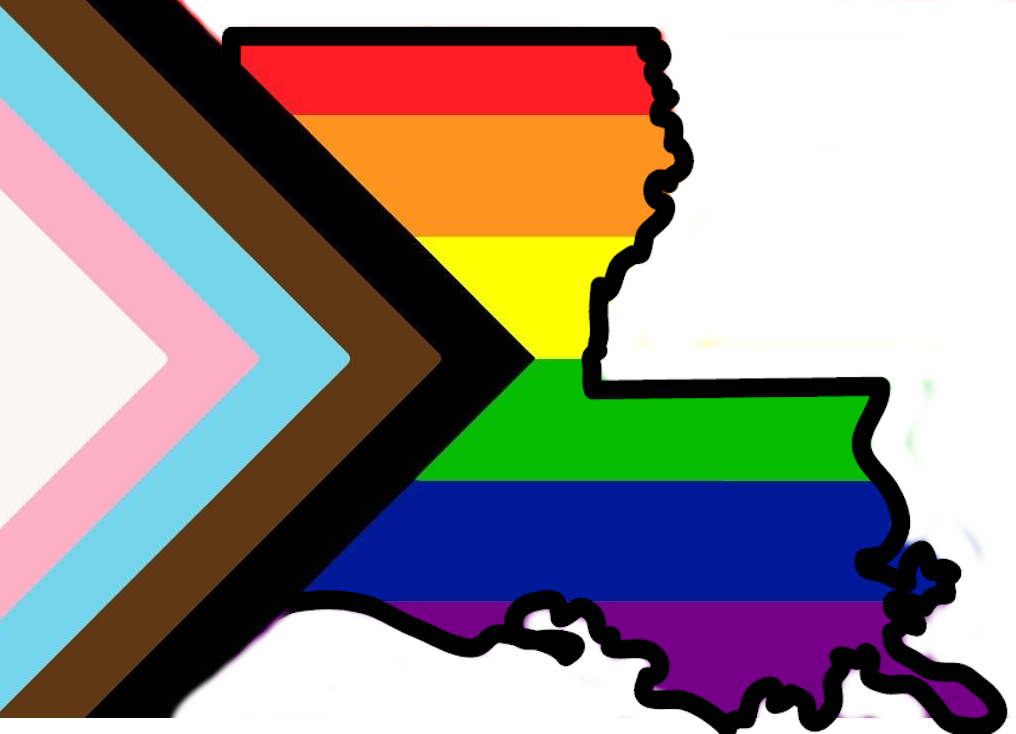FAQs
What Do You Mean by Trans?
We are using trans as an umbrella term to include all transgender, non binary, gender queer and gender non-conforming people. Language is tricky and always shifting (which, by the way, we think it a good thing), but in general if you don’t consider yourself cis you are who we’re thinking of!
Who is Doing This?
This project is trans-run. Everyone doing the interviews, field work, building this website, and building this community is trans. Sophie is the one you’re most likely to interact with, but other folks come and go as their attention and schedules allow.
Why Are You Doing This?
The Louisiana Trans Oral History Project (LaTOHP) exists to fill the gaps in the written record and to ensure trans voices are included in the history of Louisiana. We’re committed to creating the historical sources that ensure future generations know that we were here and what our lives are like.
What Are Oral Histories?
Following our friends at LSU’s T. Harry Williams Center for Oral History, we define oral histories as interviews that fill gaps in the written record, and which serve as primary resources for future research.
Recorded interviews can replace missing elements that are vital to historical studies. Oral history methodology is based on personal interviewing, suited to understanding meanings, interpretations, relationships, and subjective experiences.
Read more about oral histories at the Center’s site here: https://www.lib.lsu.edu/oralhistory/about.
What Does It Mean That You Are Partnering With the T. Harry Williams Center for Oral History?
Our partnership with LSU’s T. Harry Williams Center for Oral History means that we can focus on creating the history. The Center helps us with legal, ethical, and infrastructural concerns. They do this type of thing all the time and know what sort of forms we should use, what best practices we should follow, and how best to preserve the interviews for future generations. Our partnership frees us to focus on community building.
LaTOHP is not an LSU project, though. We remain an independent, community-run initiative.
What Will Happen to the Interviews?
That is completely up to people doing the interviews.
If the interviewee wants, the interviews will be held by T. Harry Williams Center for Oral History, whose collections are archived in LSU Libraries’ Special Collections and will be accessible to scholars, community members, and others in perpetuity. We will also put portions of the interviews and transcripts on this website.
If the interviewee does not want to donate their interviews to LSU, they can still choose to share the interviews through this website, or even not share them at all.
Are There Similar Projects Based in Other Parts of the Country?
There are a number of similar projects. Here are a few examples.
LGBT+ Archives Project of Louisiana
Right here in our own backyard, the LGBT+ Archives Project of Louisiana promotes and encourages “the protection and preservation of materials that chronicle the culture and history of Lesbian, Gay, Bisexual, and Transgender community in Louisiana.”
Queer Mississippi Oral History Project
The Queer Mississippi Oral History Project consists of interviews with lesbian, gay, bi-sexual, transgender, and/or queer people in North Mississippi.
Country Queers is an ongoing multimedia oral history project documenting the diverse experiences of rural, small town, and country LGBTQIA+ folks in the U.S.A.
New York City Trans Oral History Project
A community archive devoted to the collection, preservation and sharing of trans histories, organized in collaboration with the New York Public Library
The Tretter Transgender Oral History Project
The Tretter Transgender Oral History Project (TTOHP) is committed to collecting, preserving, and making available oral histories of gender transgression, broadly understood through a trans framework.
Trans Oral History Project of Iowa
An Iowa-based project to collect oral histories from trans folx. Website is forthcoming, see this story for some information.
